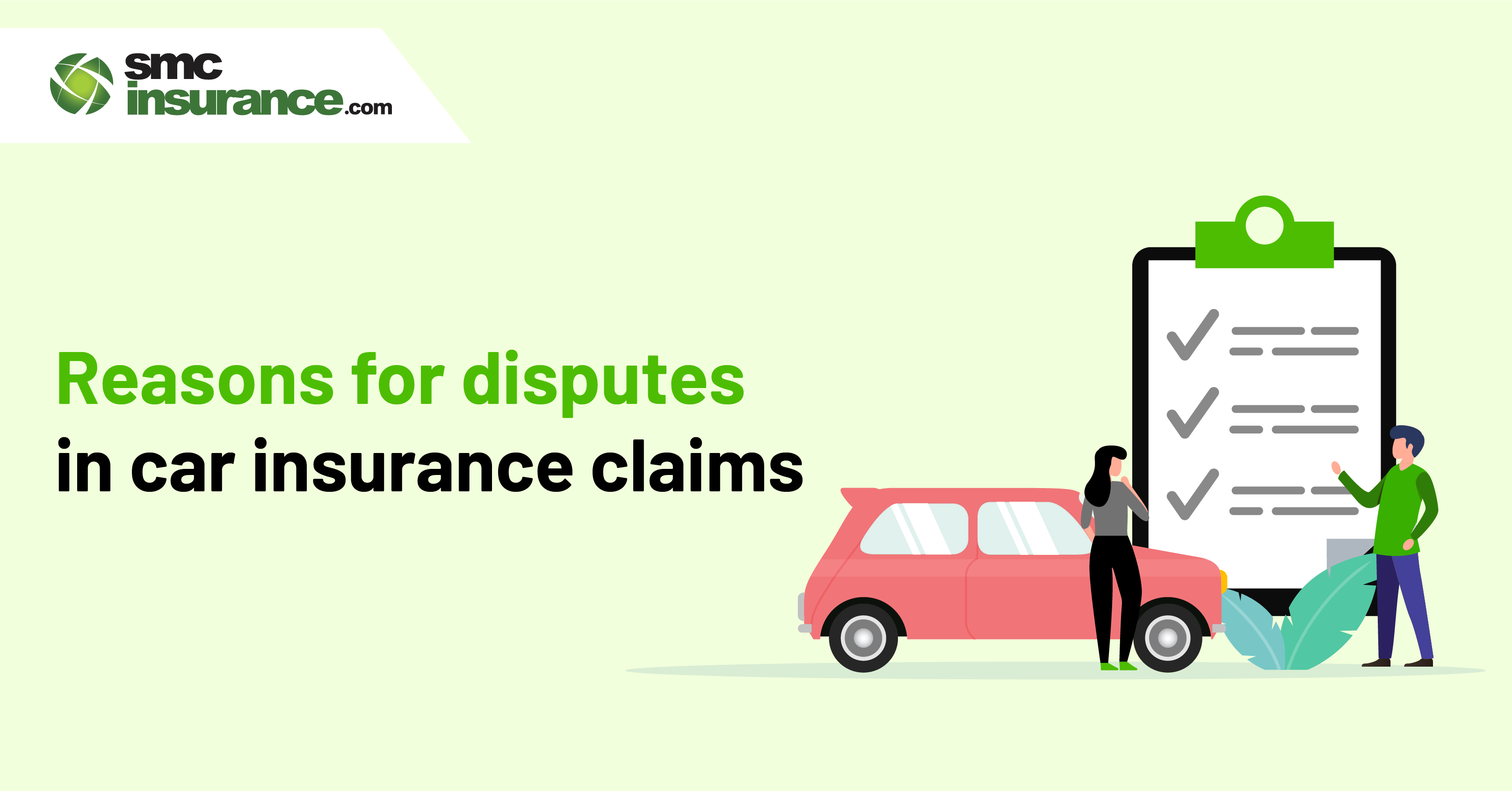Shounak, a 25-year-old, gets into a car accident. He crashed his car into a fruit stall and the owner got a severe spine injury, leaving him permanently disabled. Shounak is faced with expenses of repairing the stall as well as the owner’s hefty medical bills. Shounak files a claim under his comprehensive insurance policy to cover these costs. Turns out, the claims process isn’t as straightforward as he thought it would be!
It's important to be aware of why insurance companies deny claims - so you don’t face any hassles or shocks - when it actually comes to claiming the amount, after having paid the premiums for a long duration
Calculate Your Health Insurance Premium
Reasons For Disputes In Car Insurance Claims
These are the some of common reasons due to which you may face complications during claims -
Incorrect No Claim Bonus
You need to declare the correct No Claim Bonus while purchasing the policy.
No Claim Bonus (NCB) - The NCB is a discount you get for not filing any claim during a particular year and maintaining a clean driving record. The NCB percentage ranges from 20% to 50%.
When you renew the policy, the insurer will ask about your previous year's NCB. Suppose you had a 25% NCB discount in the previous year's policy, then you will be eligible for a 35% NCB discount in the current policy. But, if you incorrectly choose your previous NCB as 35% instead of 25% during renewal, the following may happen
- The insurer will cross-check your claim history, NCB, etc, with your previous insurer, and if they find that the NCB is incorrect, they will ask you to pay the difference.
- Suppose your previous insurer fails to respond to your current insurer, the NCB will be rechecked when a claim is filed. As soon as the insurer discovers that the NCB is incorrect,
- You will be asked to pay the difference amount before they make any payment to you, or
- The NCB will be deducted from the payable amount, and then the remaining payment will be made to you, or
- Depending on the insurer, your claim can be denied
- Now, when you renew from the same insurer, they will send you a letter asking you to pay the difference amount. You may receive this letter by mail, email, or by phone from your insurer.
- After you make the payment, they will make the necessary corrections in the policy and provide you with an updated copy.
- If you fail to make the payment and miss the reminders, the insurance company will recheck the NCB in case there is a claim.
- If there are any differences in the NCB then the company can either ask you to make the payment before they pay your claim amount or they can reject the claim.
What You Can Do
- Do not be in a hurry. Make sure you enter the correct NCB while renewing the policy. Many websites have a default previous NCB prefilled on the website, when you are buying the policy. Ensure you are vigilant about this. In case you are not sure about the NCB percentage accumulated under your policy, contact your insurer.
- Sometimes you may realise that you have chosen the wrong NCB after buying the policy. Ensure you check your policy carefully, when you receive it. In a case where you find that the NCB was wrong, notify the insurer as soon as possible. The insurer will require you to pay the difference premium to update the policy.
- Keeping your contact details up to date with the insurer will ensure you do not miss any letters or reminders pertaining to any change in the NCB.
Consumables
A comprehensive policy generally does not cover consumables like nuts, bolts, engine oil, coolant, etc. Hence, when you file a claim, you will have to pay for consumables out of your own pocket. This means you won't receive your entire claim amount.
For example, Vidya buys a comprehensive insurance policy for her car after a friend recommended it. As a result, she did not read the policy wordings and assumed that the insurer would pay all the expenses in the event of an accident. A few months later, she got into an accident, which severely damaged the car boot and the coolant. When she raised the claim, she found that the insurer would only cover the boot damage and not the coolant damage as insurance policies do not cover consumables.
Therefore, make sure you go through your policy wordings to know what is covered and what isn't - so as to avoid such surprises when making a claim.
Alternatively, you can purchase a consumable cover as an add-on, if you do not wish to pay for consumables during a claim. With the consumable add-on cover, the cost of the consumables will be borne by the insurance company.
Get Free Quotes to Secure Your Health Now
Understand Voluntary Deductibles
A deductible is an amount that you must pay from your end before the insurance company starts to pay the claim amount.
There are two types of deductibles -
Compulsory Deductible
The compulsory deductible is a mandatory deductible in motor insurance policies, and the amount is fixed. You need to pay it every time a claim arises. It depends on the cubic capacity of your car. For cars with CCs below 1500, the compulsory deductible is ₹1000/-, and for those with CCs above 1500, it is ₹2000/-. The compulsory deductible will not impact your premium.
Voluntary Deductible
As the term implies, a voluntary deductible is an optional amount that you can choose to spend from your end. You are basically taking responsibility for a part of the claim. Hence, insurers offer a discount on the own damage premiums when you choose this deductible. The higher the deductible, the lesser the premium.
Please keep In Mind -
- Choosing this option will require you to pay a voluntary deductible on top of the compulsory deductible.
- Don't choose a higher deductible just for the sake of lowering your premium as this in turn will lead to more out-of-pocket expenses at the time of claim. In case you have selected a voluntary deductible unknowingly, notify the insurer and have it removed from your policy, so that you do not have to pay an additional amount when you file a claim.
- Selecting the voluntary deductible is only advisable if -
- You are confident in your driving abilities - as, in case, you meet with an accident, you will end up paying a significant amount of money during a claim.
- You don’t drive your car often and want to pay a lesser premium.
- Make sure you do extensive research before adding a voluntary deductible to your policy.
Non-Disclosure Of Information
Make sure you disclose all material facts (your NCB, claims history, etc.) to the insurance company honestly.
If you make any false statements and file a claim later on -
- The chances of your claim getting rejected are high, or
- The insurer may deduct the difference from the claim payment. This happens if you have not made any declaration that will affect the premium.
For example, Dhruv's policy expires in 3 days. He switches to another insurance company after finding a better deal. When renewing his policy with the new insurer, he decides not to inform the insurer about the claim on his previous policy, hoping to get the No Claim Bonus discount. Sadly, he meets with an accident within two weeks of renewing his policy. When he files a claim, the insurer rejects it on the grounds that his previous claim was not disclosed to them.
Modifying Your Car Without Notification
At the time of buying an insurance policy, you are required to provide every detail related to the car, like engine capacity, alloys, car condition, etc. After some months, you may want to make some modifications to your car to improve its power, fuel efficiency, look, etc. Ensure your insurance company is informed if you make any changes. In case, you are adding a CNG kit, electrical or non-electrical accessories, etc, make sure you notify your insurer. If you fail to inform the insurer and meet with an accident, there are chances of having your claim rejected or the parts not covered.
For example, Megha bought comprehensive car insurance and after a few months, she decided to add a CNG kit to her car. As she had a comprehensive insurance policy, she assumed the CNG would be covered by default.
Several months later, while driving, she met with an accident that damaged her CNG kit. When she raised a claim with the insurer, the claim was rejected stating the addition of CNG was not disclosed to the insurer.
Make sure that any modifications to the car are reported to the insurance company and included in the insurance policy as well. Any addition of CNG or electrical or non-electrical accessories will attract an extra premium. So, once the payment is done, the insurer will make the required changes to the policy and will send you a modified copy of the policy.
Lack of Insurable Interest
A person or entity will be considered to have an insurable interest only if any loss or damage caused to an asset creates a financial burden on them.
So, you can insure a vehicle only if you are the owner of the vehicle. If you have a second-hand car and the vehicle documents have not been transferred to your name, there is no insurable interest. In case you are involved in an accident with the car, you cannot claim for the damages incurred because the car's paperwork does not belong to you.
For example, Ravi bought a second-hand car from his friend, Raghav. As Ravi was driving to work, he crashed into a lamppost. His car's bumper was severely damaged as a result. When he applied for a claim, his claim got rejected due to a name mismatch in the insurance document. It turned out that Ravi hadn't transferred the insurance documents to his name when he bought the car.
Make sure that you get the RC and policy copy transferred to your name once you have purchased a second-hand car in order to prevent complications during claims.
Delay in Intimating Claim
Claims must be filed within a stipulated timeline. When you fail to adhere to the same, or do not inform the insurer about the losses or damages, the insurer can reject your claim. In order to ensure a successful claim, it is imperative to register it within 24 to 48 hours of the incident. If there is a delay, you must provide a valid reason and proof for the delay.
For example, imagine you need to board a train. While travelling to the railway station, a car blindsides you, causing damage to the side mirror of your car. You decide to claim for the same after your return because you are in a hurry. Now, when you file a claim, your insurance company will ask you why the claim was delayed. You can let them know about your travel plans. You may be asked to submit travel details and tickets to the insurer. Your claim could be rejected if you fail to submit the required documents.
Summing Up!
These are some of the most common reasons why your motor insurance claim can be disputed by the insurer. Having a clear understanding of these will ensure you do not encounter any hassles when filing a claim.






 Instant Renewal.
Instant Renewal.
 No Paperwork.
No Paperwork.




